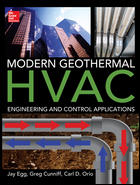Today’s boilers bear little resemblance to the technology of yesterday, with remote diagnostics and programmable logic controllers (PLCs) now the norm. As boiler technology continues to advance, the role of boiler technicians has evolved to keep up with ongoing changes in the industry.
I sat down with two leaders at Thermogenics: Joe McMullen, vice president of U.S. operations, and Paul Ingham, vice president of sales and marketing, to get their thoughts on the role of the modern technician and their predictions for the future of boiler services.
1) How has the skill set of a boiler technician changed over the past few decades?
McMullen: Thirty years ago, a boiler technician needed few tools to complete a job: a pipe wrench, some sockets, and a volt meter would do the trick. Controls were quite simplistic. Fast-forward to today, and nearly everything runs through a PLC. Now, in addition to traditional tools, a boiler technician needs to carry an arsenal of technology, too, from a laptop to a HART communicator to a combustion analyzer and more. Today’s technician must understand a lot more than simply how a boiler works.
Ingham: I completely agree. Another change is the increase in health and safety focus and measures. Today’s techs require a range of health and safety certificates and must possess a multitude of varied skill sets.
2) What does a day in the life of a modern technician look like?
McMullen: Today’s technician must have a good understanding of not only the boiler but everything in the boiler room itself. A lot of times, when a technician gets called to a site, they discover the boiler is not the issue, and the problem is somewhere in the broader system. Maybe it’s a variable frequency drive (VFD) issue or a downstream control valve that’s affecting the boiler.
Ingham: Today’s technician must also have a wide variety of soft skills — from effective communication to time management to crisis management.
McMullen: Yes, so true. People skills are extremely important in this business. When a tech shows up on-site, most of the time, you’re met by a concerned customer and it’s your job to help put them at ease.
Ingham: Modern technicians also need to have good self-awareness and know when to take a break. When I first started my career, I remember senior technicians were very regimented with how long they worked and when they stopped to take lunch, for instance. Today’s techs can fall into the trap of working long hours without taking a break and might put themselves at risk. It’s so important for technicians to refuel and reset while on the job.

3) How do we grow and train the next generation of boiler techs?
Ingham: In my experience, the best way to grow and train boiler techs is to provide them exposure. I think the notion of apprenticeship is a critical path for any technician. No online course can substitute for apprenticeship and time in the field. When apprentices get a chance to gain hands-on training, they also get to learn about the industry and whether they would prefer to be a boilermaker or a boiler technician.
McMullen: That’s spot on. We can train techs with theories, but if they are not coached in how to apply that in the real world, that doesn’t help anyone.
4) How can we do a better job of educating our clients about their boilers, and why is that important?
McMullen: At Thermogenics, we take a lot of time to not only train our technicians but to also train our clients on the equipment. We teach them the basics of how a boiler operates and on how to use the PLC platform to find the right code should an anomaly occur. This helps our service team prepare in advance, so they arrive armed with the appropriate parts and diagnostic tools.
Ingham: We’ve found that investing in training for our clients helps them feel more empowered and knowledgeable about their boilers. The more informed a client is, the more they understand and invest in proper maintenance of their boiler and plant.

5) What does the future hold for the modern boiler technician? How do you think the industry will evolve?
McMullen: The modern technician’s role will be rooted in PLC-based controls. I feel that combustion theory and experience will be required as we look at tighter emission controls and alternate fuels.
Ingham: Absolutely, and technicians are going to have to be forward-thinking, as I believe the industry will only become increasingly focused on compliance.










